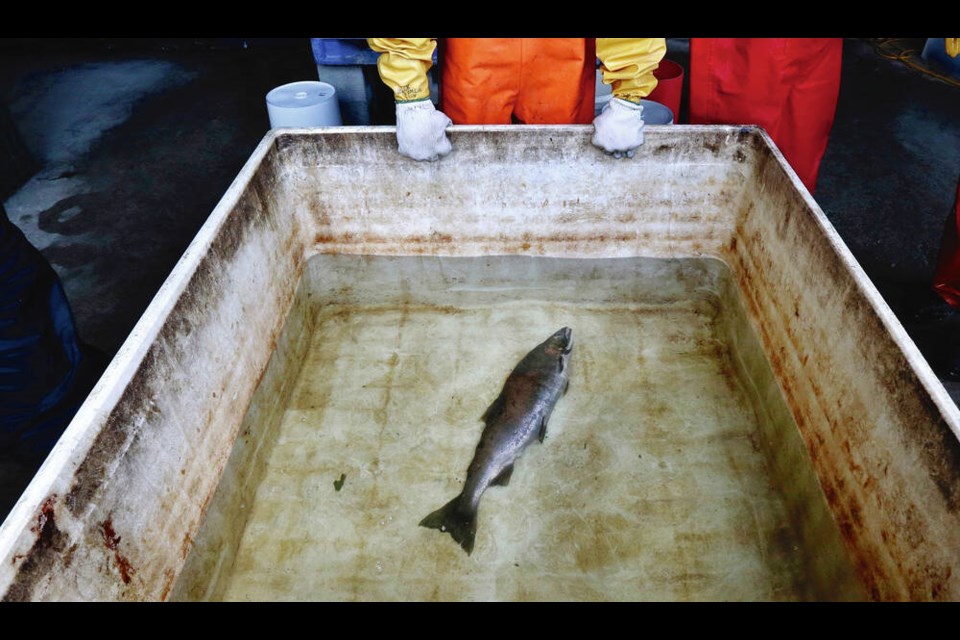The Peninsula Streams Society says “lethal levels” of a toxin linked to tires have been found in a local waterway.
Known as 6PPD-Quinone or 6PPD-Q, the substance was detected in water samples taken by volunteers in Gabo Creek, a salmon-bearing tributary of the Colquitz River, the society said.
It said 6PPD-Quinone is a chemical compound that comes from a preservative used to extend the life of automotive tires.
Friction causes the tires to release small particles onto roads.
Those particles are then washed by rain into streams, rivers and oceans.
The compound has been shown to be deadly to coho and potentially hazardous to other aquatic life, the society said.
“These results highlight a growing threat to our watersheds,” said society executive director Kyle Armstrong, who called for immediate action to have such contaminants removed from storm water before it enters waterways.
Armstrong said green stormwater infrastructure such as rain gardens offers an effective filtration solution. “Collectively we need to scale up and prioritize their adoption.”
The local sampling activity is part of a larger project to monitor 6PPD-Q, led by the B.C. Conservation Foundation’s Aquatic Research and Restoration Centre and Â鶹´«Ă˝Ół»Island University’s Applied Environmental Research Lab.
Project funding comes from the B.C. Salmon Restoration and Innovation Fund, with a goal to identify major sources of 6PPD-Q and understand how its concentrations change over time.
The Peninsula Streams Society was established in 2002 and is dedicated to the restoration and protection of Greater Victoria’s aquatic ecosystems.
U.S. regulators said in November they would review the use of the rubber preservative 6PPD after a petition from West Coast Native American tribes that want it banned because it kills salmon as they return from the ocean to their natal streams to spawn.
Washington, Oregon, Vermont, Rhode Island and Connecticut also wrote the the Environmental Protection Agency, citing the chemical’s “unreasonable threat” to their waters and fisheries.
Tire manufacturers are already looking for an alternative that still meets federal safety requirements.
Used as a rubber preservative in tires for 60 years, 6PPD is also found in footwear, synthetic turf and playground equipment, and breaks down into a byproduct, 6PPD-quinone, that is deadly to salmon, steelhead trout and other aquatic wildlife.
Coho appear to be especially sensitive; it can kill them within hours, the tribes argued.
— With files from The Associated Press
>>> To comment on this article, write a letter to the editor: [email protected]



